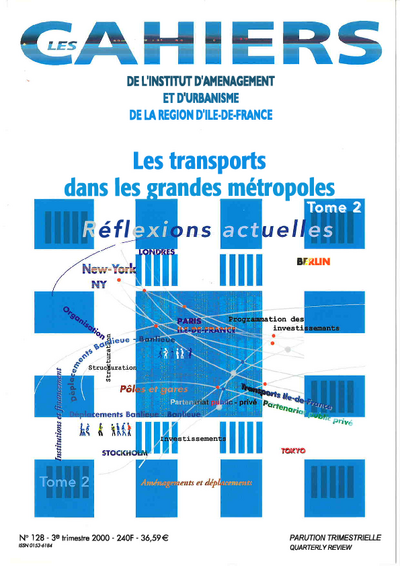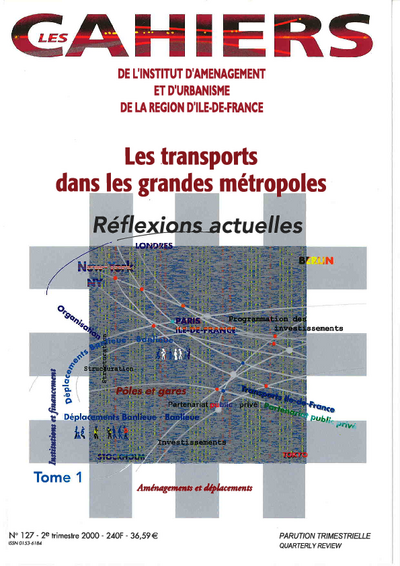Transportation in large cities: for an overall strategy
The purpose of this second issue of Les Cahiers dedicated to transportation in large cities is to describe the trends in those cities' policies. The goals are not entirely new: developing public transportation and reducing road congestion are unquestionable concerns, as it is obvious that beyond a certain size, all-car policies can only lead to stifling and city deconstruction. The new aspect lies in the growing awareness that only a global strategy, involving all transportation and travel modes and phases, will ensure that such goals are achieved.
The plan de déplacements urbains (Urban Transportation Plan) that Ile-de-France has just developed is a good illustration of this type of approach.
Heavy networks have their place within these strategies, and one can only be satisfied that international sponsors now acknowledge the absolute necessity of such networks in cities with several million inhabitants. But the emphasis is put on service quality, without which public transportation loses its appeal towards users who are less and less captive, and on the complementarity to be established with smaller networks serving the city: bus services, pedestrian areas or cycle tracks.
Another aspect of these approaches includes attempting to influence the demand, with a view not to reducing mobility, which is a factor of life quality and economic competitiveness, but to ensuring that such mobility is exercised in conditions meeting the requirements of sustainable development. In addition to traditional tools such a parking, more radical ideas are emerging, such as city toll systems. Technological progress could facilitate their implementation, and cities such as London and Tokyo are seriously considering them. User information is also a possible lever.
These more global, more diversified strategies require close integration in other city policies: city planning, at every level, from the block, as to road sharing and public space treatment, to land allotment, one of the basic factors of travelling needs. Social, to deal with the essential matters of safety or right to mobility for all. Economic, to organize the transportation of commodities in the city, for instance.
They call for a renewal of techniques and know-how, which all that have an interest in knowledge transfers and experience sharing ought to support.
This study is linked to the following theme :
Mobility

